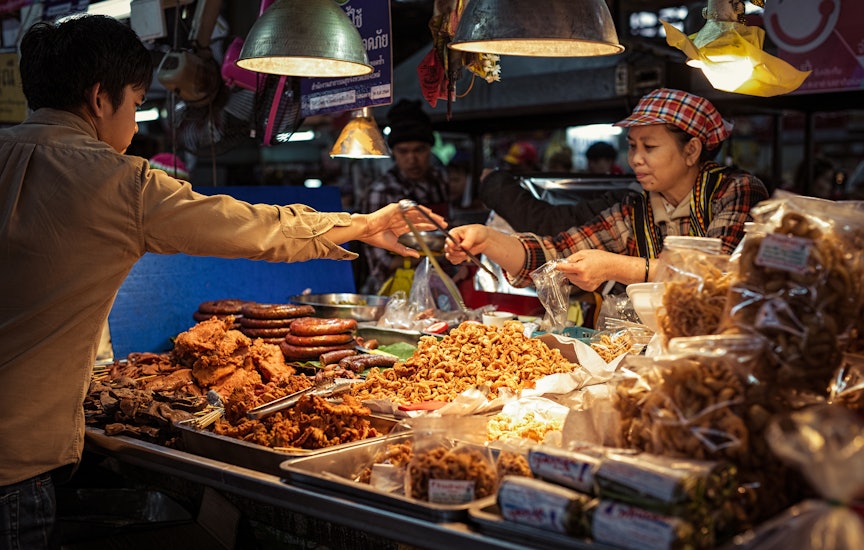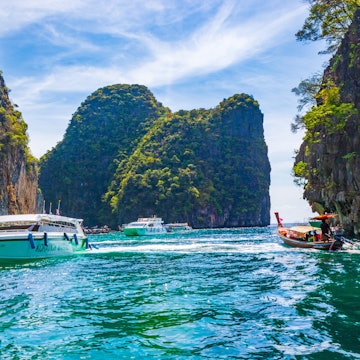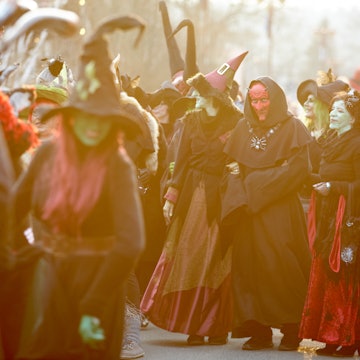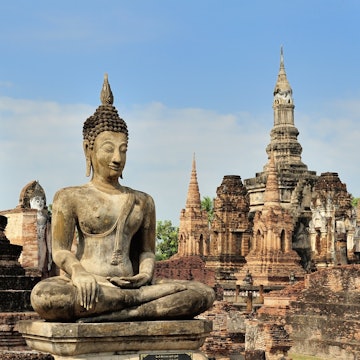

Crowds surround a Buddha statue as part of Songkran festivities in Chiang Mai, Thailand. 501room/Shutterstock
You’ve probably heard of Thailand’s infamous water festival, known locally as Songkran, when entire city streets transform into soggy, boozy battlegrounds.
But the festival has its origins in something a lot more sober. Here is our guide to celebrating the festival.
What is Songkran?
Songkran is a celebration of the Lunar New Year, the beginning of the Thai calendar, with the festivities officially spanning five days in mid- to late-April. In 2025, Songkran celebrations take place from April 13 to April 15.
With a nod to renewal, and in an effort to ensure an auspicious year, this is the time when Thais would traditionally cleanse Buddhist imagery at the local temple. As part of this ceremony, there’s also a tradition of sprinkling scented water on the hands of elders, a gesture of respect.

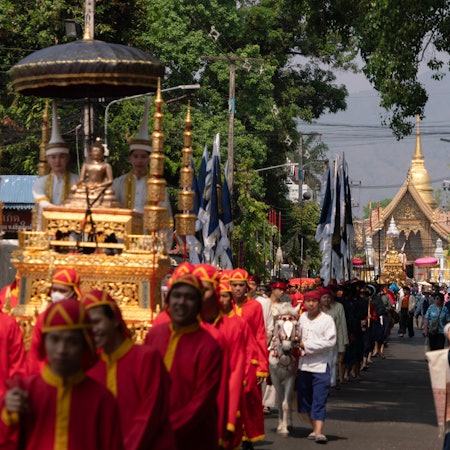
In recent decades, this rather pacific affair has somehow morphed into full-scale aquatic warfare, with fire hoses and Super Soakers, speakers blasting Thai country music, and rivers of beer, open-air raves and indoor foam parties. Yes, the more subdued, traditional elements of the holiday still take place, but for visitors — and many Thais — Songkran can seem a lot like spring break.
To prepare, we dare you to try to avoid this Sonkran song, played on a loop in virtually every 7-Eleven and at every celebration in the country.
So what do you need to know about celebrating Songrak in Thailand? Here it is.
Where to celebrate Songkran
Songkran is celebrated across the country, but Thailand’s major urban centers, Bangkok and Chiang Mai, are where you’ll find the most raucous parties. So if you’ve come to view the parade or party, make Bangkok your base. You'll see the most action in the areas near Thanon Khao San or Thanon Silom.
If you’re interested in something more deeply cultural, consider staying in Chiang Mai, where there’s more of an emphasis on the spiritual and religious elements of the festival.
Upcountry, in Thailand’s small towns and villages, it’s much easier to gain access to the more traditional and religious side of the festival, which centers around family and the local Buddhist temple.

What to pack and wear
April is the peak of Thailand’s hot season, so even that light sweater or windbreaker you wore on the plane will remain at the bottom of your bag.
Most years you’re likely going to be soaked and/or smeared with baby powder within seconds of walking outside, so follow the lead of the locals and adopt the Songkran uniform of swimming trunks, a t-shirt and flip-flops. It’s worth noting that wearing revealing clothing is discouraged (the wearing of "spaghetti straps" is a regular source of condemnation and hand-wringing). Going shirtless in public is seen as disrespectful, and save your swimsuit for the beach.
What to do and what to avoid during Songkran
Do dress to get wet. Nobody is exempt from being splashed, and the well-dressed and non-Thai are even more enticing targets.
Don’t drive. Thailand’s already sky-high traffic fatality rate soars during Songkran, often due to drunk driving, so it’s a good idea to stay off the roads.
Don’t plan on eating at a specific restaurant or shopping. During Songkran, businesses can close for as many as five days.

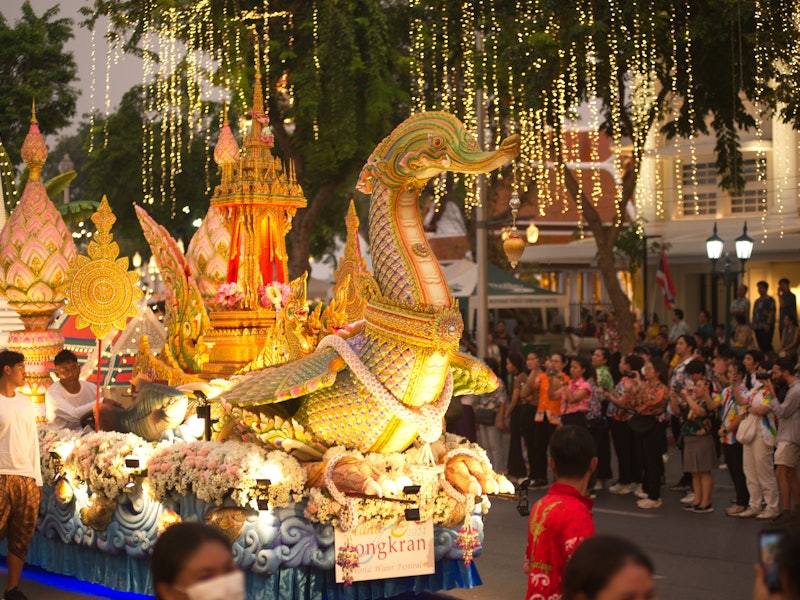
Can children attend Songkran celebrations?
Songkran’s water wars are a holiday seemingly invented by kids, with most activities being safe for children to attend. However, some of the parties, such as those on Thanon Khao San, in Bangkok, may be too boozy and raucous for families.
Where to stay and when to book
Buy a ticket and book hotels at least a few months in advance. Songkran is one of the busiest times for travel in Thailand, and airline seats and hotel rooms sell out quickly.
If you're staying for a while, consider adding a scenic journey or one of our top hikes to your trip.







